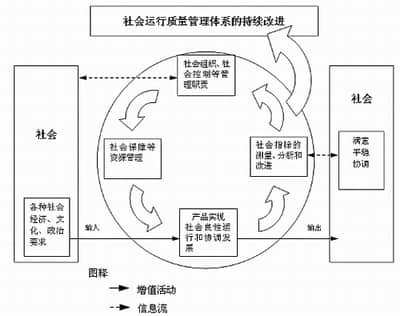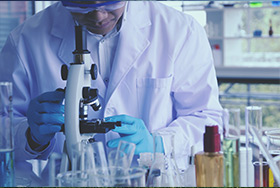From Industrial Society to Information Society
Source: Shangpin China |
Type: website encyclopedia |
Time: 2015-06-13
Sociologists believe that human society can be divided into hunting society, agricultural society, industrial society and information society from the perspective of productivity development. Different social forms, main production modes and basic production relations internet Is different.
In the hunting society, people's main activities and means of survival (that is, production methods) are hunting and gathering. Under normal quiet conditions, people can survive and linger as long as they hunt enough animals and collect enough plant fruits. The Tsuen Ben production relationship determined by this mode of production is based on the common survival relationship of tribes. The animals and plants people need are completely provided by the natural environment. At that time, the environment was harmonious and biodiversity. Thousands of years ago, mankind entered the agricultural society. Agricultural society is a natural economic form with food as the main production object and land planting as the main production mode. With the progress of human smelting technology, iron tools and animal power have improved the efficiency of agricultural production. The travel based production relationship in agricultural society is a cooperative production relationship based on family blood. There is a Chinese saying: "A cow in ten acres of land, and a wife and child heat the kang head". Here, 30 mu land is the land area that a farmer can usually use traditional agricultural workers to make in the traditional agricultural society.
The end of the 17th century was the starting point of _T.Ak society. Due to the invention and application of Yan steam turbine and Nei Hui machine, the production mode of workers acting on the object of labor has changed. A new element has been added to the production of "one tool", which is machinery. In the next industrial society, the production mode is dominated by the use of natural resources (raw materials, energy) to produce industrial products. Its compilation production relationship is a cooperative production relationship that is more stupid than machines.
It should be pointed out that the changes that took place in the industrial society did not and could not eliminate agriculture, but the impact on agriculture is obvious. Through the use of industrial products, such as various agricultural machinery, pesticides, fertilizers, weed weeds, etc., the efficiency of agricultural production labor has been greatly improved. In the western developed countries, one person can use agricultural production machinery to cultivate thousands of acres of land. The area of arable land around the world is relatively determined and even decreasing, which leads to the transfer of the largest agricultural surplus labor force to other industries. Official data released by the State Council Information Office in 2008 shows that the number of migrant workers in China has reached 230 million.
According to Alvin Tochuan, a famous American sociologist and futurist, in his famous book "The Third Wave" published in 1980, human society has experienced the impact of the agricultural revolution and the industrial revolution. The third wave is the information revolution, and the society brought by the information revolution is the information society
In 1956, for the first time, the number of "white-collar workers" engaged in technology, management, business transactions, etc. in the United States exceeded that of "blue collar workers" engaged in manual labor. Many people believed that this was the beginning of the information society.
The information society is a highly developed society for the collection, processing, circulation, control and utilization of information. The arrival of the information society is caused by the information revolution. The main technological factors that promote the information revolution are computers, Anhui electronics and communication technology. The basic production relationship in the information society is the cooperation between people. The main production mode is the acquisition of information Knowledge creation and sharing. The tool of seal script is information technology.
Broadly speaking, partial information technology refers to the technology of information collection, recognition, extraction, transformation, storage, transmission, processing, retrieval, detection, analysis and utilization. In this sense, the traditional printing technology using movable type typesetting is also an information technology.
Narrow sense information technology mainly includes computer technology, Anhui electronic technology, communication technology and sensor technology. Information technology can extend or expand people's information function. For example, the task of sensor technology is to extend the function of human sensory organs to collect multiple information, the task of communication technology is to extend the function of human nervous system to transmit information, the task of computer technology is to extend the function of human thinking organs to process information and make decisions, and the function of human memory organs to store information. Of course, this division is only relative There are no sharp boundaries. For example, sensor systems and communication systems have information processing, while computer systems also have information collection and information transmission
It should be pointed out that the narrow sense of information technology mentioned here mainly refers to electronic information technology. The developing optical information technology, biological information technology, intelligent technology, etc. will further expand the connotation of information technology.
Information technology has fundamentally changed the concept of time and space of human activities. With the support of information technology and corresponding facilities, people can complete tasks with the highest quality in a very short time and in a very large space network, which are much larger than the work that can be done manually or mechanically.
Although in the information society, information and knowledge have become more direct investment than material and energy, the information economic activities aimed at Juiyou and village use auction are expanding rapidly. It has gradually become the main content of national economic activities. However, the information revolution has not eliminated industry and agriculture, but has had a profound impact on industry and agriculture and even the whole society.
In a word, the new economic and social forms have not completely excluded the old ones, just as the industrial society needs agriculture. The information society also needs a solid industrial foundation. The informatization of the industrial society has developed from the industrial society to the information society, and the industrialization of the agricultural society has developed from the agricultural society to the industrial society It has a very similar role: technological progress has greatly reduced the working basin of social members, and the connotation of work has undergone a thorough change. A large number of social members have become brainworkers.
Main features of industrial society The information society is also called the post industrial society, which shows that it is closely linked with the industrial society. Therefore, it is necessary to analyze the main characteristics of the industrial society as the basis for a deep understanding of the information society and the information revolution. Toffler summed up six basic principles of the second wave in his book The Third Wave. These principles reflect the main characteristics of industrial society. (1) Standardization. This is the most familiar principle of industrial society. Its fundamental purpose is to greatly improve the efficiency of production and management. The standardization of products and their parts, business procedures and administrative management, and workers' labor actions, Even the standardized level and skills of employees (which makes Weimen easily associate with the standardized examination that is very popular in various schools), and so on. (2) Specialization. Industrial society requires a fine division of labor in the process of labor, replacing comfortable and versatile farmers with experts and workers specializing in a certain business. Facts show that specialization can effectively improve production efficiency, reduce product costs, and also improve product quality. (3) Synchronization. In an industrial society, time is money. Valuable machines are not allowed to be idle or wasted. Therefore, labor should be carried out according to the rhythm of machine rotation.
Source Statement: This article is original or edited by Shangpin China's editors. If it needs to be reproduced, please indicate that it is from Shangpin China. The above contents (including pictures and words) are from the Internet. If there is any infringement, please contact us in time (010-60259772).







